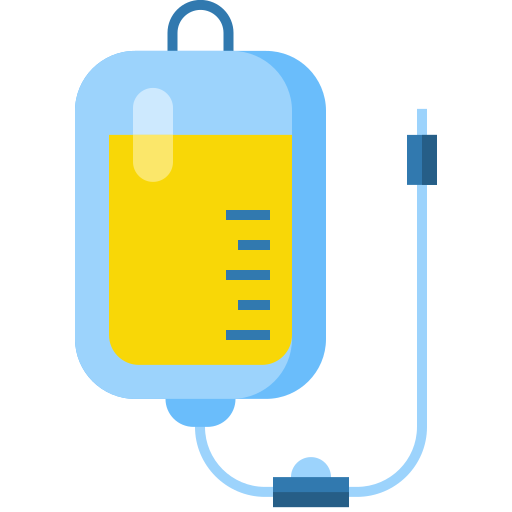
Basiliximab
20 mg/vial
Novartis (Bangladesh) Ltd.
Product Details
Description
Basiliximab is used as part of an immunosuppressive regimen that includes cyclosporine (MODIFIED) and corticosteroids. Basiliximab is for central or peripheral intravenous administration only. Reconstituted Basiliximab should be given either as a bolus injection or diluted to a volume of 25 mL (10-mg vial) or 50 mL (20-mg vial) with normal saline or dextrose 5% and administered as an intravenous infusion over 20 to 30 minutes. Bolus administration may be associated with nausea, vomiting and local reactions, including pain. Basiliximab should only be administered once it has been determined that the patient will receive the graft and concomitant immunosuppression. Patients previously administered Basiliximab should only be re-exposed to a subsequent course of therapy with extreme caution due to the potential risk of hypersensitivity. Parenteral drug products should be inspected visually for particulate matter and discoloration before administration. After reconstitution, Basiliximab should be a clear-to-opalescent, colorless solution. If particulate matter is present or the solution is colored, do not use. Care must be taken to assure sterility of the prepared solution because the drug product does not contain any antimicrobial preservatives or bacteriostatic agents.
May diminish response to inactivated vaccines. May enhance the adverse/ toxic effect of live vaccines, avoid concomitant admin.
Known hypersensitivity to basiliximab or any component of the formulation
Serious side effect such as: Pain or burning when you urinate Easy bruising or bleeding, unusual weakness Tremors, shaking Fever, chills, body aches, flu symptoms, vomiting, diarrhea Trouble breathing Pale skin, feeling light-headed or short of breath, rapid heart rate, trouble
Pregnancy Category B. There are no adequate and well-controlled studies in pregnant women. No maternal toxicity, embryotoxicity, or teratogenicity was observed in cynomolgus monkeys 100 days post coitum following dosing with basiliximab during the organogenesis period; blood levels in pregnant monkeys were 13-fold higher than those seen in human patients. Immunotoxicology studies have not been performed in the offspring. Because IgG molecules are known to cross the placental barrier, because the IL-2 receptor may play an important role in development of the immunesystem, and because animal reproduction studies are not always predictive of human response, Basiliximab should only be used in pregnant women when the potential benefit justifies the potential risk to the fetus. Women of childbearing potential should use effective contraception before beginning Basiliximab therapy, during therapy, and for 4 months after completion of Basiliximab therapy. Nursing Mothers: It is not known whether Basiliximab is excreted in human milk. Because many drugs including human antibodies are excreted in human milk, and because of the potential for adverse reactions, a decision should be made to discontinue nursing or to discontinue the drug, taking into account the importance of the drug to the mother.
Re-exposure to a subsequent course of therapy in patient who has previously received basiliximab. Children, Pregnancy and lactation.
Renal Impairment: There are no dosage adjustments provided in the manufacturer’s labeling. Hepatic Impairment: There are no dosage adjustments provided in the manufacturer’s labeling.
A maximum tolerated dose of Basiliximab has not been determined in patients. During the course of clinical studies, Basiliximab has been administered to adult renal transplantation patients in single doses of up to 60 mg, or in divided doses over 3-5 days of up to 120 mg, without any associated serious adverse events. There has been one spontaneous report of a pediatric renal transplantation patient who received a single 20-mg dose (2.3 mg/kg) without adverse events.
-
Support 24/7
Call us anytime -
100% Safety
Only secure payments